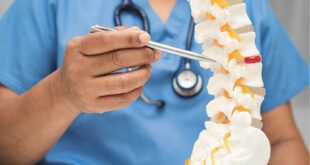 Diet, exercise and getting recommended screenings are some of the ways to lessen your risk of getting cancer.
Diet, exercise and getting recommended screenings are some of the ways to lessen your risk of getting cancer.
According to the National Institutes of Health, certain lifestyle choices can lessen the chances an individual has of developing cancer. However, even though most Americans know that choices such as quitting smoking, protecting skin from sun damage, eating a healthy diet, exercising more and getting the recommended screenings reduce the risk of cancer, following these recommendations can often be difficult.
REDUCE YOUR CANCER RISK WITH HEALTHY LIFESTYLE CHOICES
Each year, over half a million Americans die of cancer; the startling news is that about one-third to one-half of these deaths are linked to lifestyle choices and could have potentially been prevented. Start reducing your risk of cancer by making these choices in your life:
• Get to, and stay at, a healthy weight throughout your life.
• Be physically active on a regular basis.
• Make healthy food choices with a focus on plant-based foods.
• Stop smoking – or better yet, never start.
• Wear sunscreen with an SPF of at least 30.
• Get recommended screenings such as colonoscopies, PAP smears and mammograms.
• Let your doctor know if you have a family history of cancer.
SKIN CANCER AFFECTS 1 IN 5 AMERICANS
Skin cancer is the most common form of cancer in the United States. The two most common types of skin cancer, called basal cell and squamous cell carcinomas, are highly curable. Melanoma, the third most common skin cancer, is much more dangerous.
By now, most people know that a sunscreen should be used when they are going to be outdoors, even for a short period of time. However, not all sunscreens are created equally. For maximum protection, oncologists recommend a sun protection factor (SPF) of 30 or greater, regardless of skin color or ethnicity. Other recommendations include avoiding tanning beds or sunlamps, and examining your skin — head to toe — every month for any changes. You should also have a doctor examine your skin annually.
SMOKING AND CANCER
According to the Centers for Disease Control (CDC), cigarette smoking is the number one risk factor for lung cancer. It’s estimated that in the United States, smoking causes about 90 percent of lung cancers; smokers are 15-20 percent more likely to get lung cancer than non-
smokers. Tobacco products such as cigars or pipes also increase the risk for lung cancer, as well as throat and mouth cancers. Even smokeless tobacco has been proven to increase the risk of oral cancer, throat cancer, stomach cancer and pancreatic cancer.
ANOTHER REASON TO STOP SMOKING – BLADDER CANCER
Bladder cancer is the fifth most commonly diagnosed cancer in the U.S. This year, it is estimated that nearly 15,000 people will die from the disease. But here’s the real shocker— people who smoke are four times as prone to the malignancy as nonsmokers – especially women. About half of all bladder cancer cases in women age 50 and older are now traceable to smoking. In addition, current smokers are four times as likely to develop bladder cancer than people who have never smoked.
THE ROLE OF DIET IN PREVENTING CANCER
Although no particular food or diet product can prevent cancer, there is growing evidence that diet can play a significant role in some types of cancer. For example, studies have found a higher incidence of prostate cancer in men whose diets are high in fats (particularly animal fats) and low in vegetables. Likewise, 30-40 percent of certain types of breast cancer have been linked to what we eat, especially if our diet is a contributing factor to obesity. A diet that is high in fruits, vegetables, legumes and whole grains, and low in animal fats, processed foods and sugar, are generally considered healthier and can boost your immune system to help fight diseases such as cancer.
World-Class Cancer Treatment Close to Home
Florida Cancer Specialists & Research Institute (FCS) has put together a network of expert, board-certified physicians who bring world‐class cancer treatments to local communities, both large and small, across the state. With nearly 100 locations, FCS is the largest independent oncology/hematology group in the United States. That status puts the practice on the leading edge of clinical trial research and gives FCS physicians access to the newest, most innovative treatments.
Florida Cancer Specialists treats patients with all types of cancer, and offers a number of services, such as an in-house specialty pharmacy, an in-house pathology lab and financial counselors at every location, that deliver the most advanced and personalized care in your local community.
Hudson
7651 Medical Drive
Hudson, FL 34667
Hudson North
14100 Fivay Road, Suite 380
Hudson, FL 34667
Land O’ Lakes
19409 Shumard Oak Dr., Suite 101
Land O’ Lakes, FL 34638
New Port Richey
8763 River Crossing Blvd.
New Port Richey, FL 34655
New Port Richey West
5802 State Road 54
New Port Richey, FL 34652
Zephyrhills
38010 Medical Center Ave
Zephyrhills, FL 33540
For more information, visit FLCancer.com
Check Also
Breakthrough in Neuropathy Treatment: How Summus Laser Therapy Offers Hope for Nerve Pain Sufferers
Neuropathy is a debilitating condition that affects millions of people worldwide, causing chronic pain, numbness, …
 Central Florida Health and Wellness Magazine Health and Wellness Articles of the Villages
Central Florida Health and Wellness Magazine Health and Wellness Articles of the Villages



